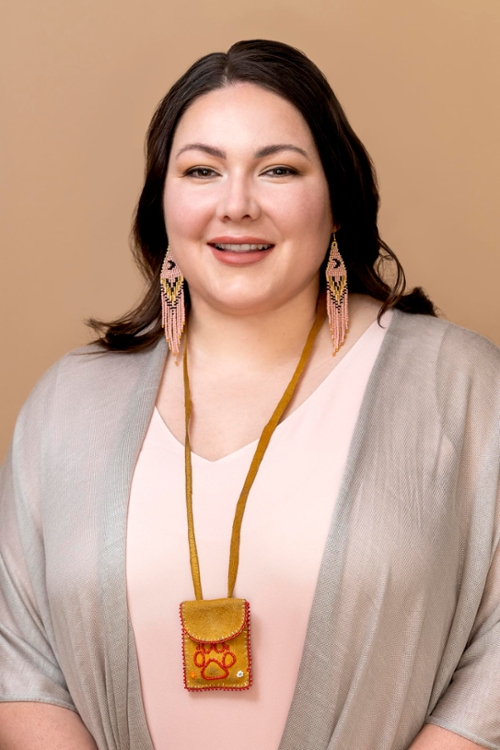Category:
Nursing alumna addresses gaps

It was during her student days in Ontario Tech’s Bachelor of Science in Nursing (BScN) bridge program that Rachel Radyk (’21) began to blossom into the young Indigenous leader she is today – the recipient of the 2022 Ontario Tech Alumni Association Up and Coming award.
Radyk, who grew up in Waterloo, Ont., is a proud member of the Chippewas of Georgina Island First Nation, was not very connected to the community.
“I always knew I was Indigenous but growing up I didn’t have the opportunities to connect to my culture” Radyk says.
Curious herself, Radyk began to explore her Indigenous roots during university.
“Jill Thompson and Carol Ducharme at Ontario Tech’s Indigenous Education and Cultural Services office were amazing,” Radyk says. “They help students get connected and learn more about their heritage. They helped me to gain the confidence to take on leadership roles and to also make connections within the Indigenous community.”
Radyk, who is “still on my learning journey,” notes that oddly enough, the pandemic eased her way into Indigenous culture, because it made virtual communication the norm and allowed her to connect easily with her home community.
She has since chosen to use her nursing degree and leadership skills to serve the Indigenous community, working as an Indigenous patient navigator with the Southwest Ontario Aboriginal Health Access Centre (SOAHAC), which serves Indigenous clients and families in Waterloo-Wellington. Radyk is a liaison between the Indigenous community and the Ontario health-care system, ensuring that Indigenous patients receive the services and supports they need during hospitalization and after discharge.
“My role includes advocacy for Indigenous patients, connecting them to supports, and educating health-care staff in hospital or clinical settings about the diverse scenarios comprising Indigenous health,” Radyk says. “I understand hospitals and their administrative procedures, and how to assist the patient in getting the services they need to support their healing journey.
Radyk’s commitment to Indigenous health goes beyond the workplace. She is chair of the Indigenous Nurses and Allies Interest Group (INAIG) for the Registered Nurses of Ontario (RNAO), a group she worked to create and to have formally recognized by the RNAO. She and her fellow members provide RNAO INAIG members guidance on Indigenous issues, and barriers Indigenous people face when accessing healthcare.
“I started out during university as a member of the executive team for the Nursing Students of Ontario Interest group for the RNAO,” Radyk says. “I saw a gap in Indigenous representation in nursing education, and in healthcare there was a need for change.” This was Radyk’s inspiration for advocating for a group that supports Indigenous nurses, Indigenous health and supports allyship.
Thanks to Radyk’s commitment, that gap and the gaps in Indigenous healthcare are closing a bit more each day.
